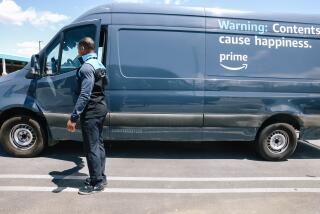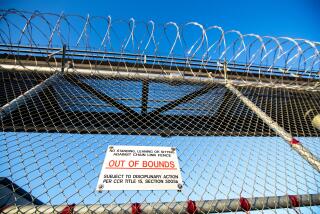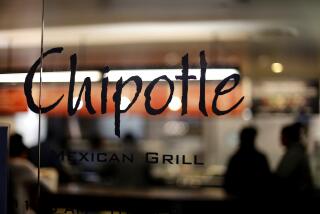Sikh truck drivers reach accord in religious discrimination case involving a major shipping company
After a seven-year federal investigation, authorities announced Tuesday that a national shipping company has agreed to change its employment practices and pay $260,000 in damages to four Sikh truck drivers in California who complained of religious discrimination.
The U.S. Equal Employment Opportunity Commission reached a settlement with trucking giant J.B. Hunt to resolve allegations that three men were denied work because they refused to cut their hair for pre-employment drug tests.
A fourth Sikh claimed he lost his job offer because he declined to remove his turban when asked to provide a urine sample.
According to the case, all four requested other types of drug tests and told company representatives that they must keep their hair unshorn and wear turbans because of their faith. Headwear and jackets were not allowed to be worn when urine samples were taken.
“I am relieved by this resolution because no one should have to face humiliation because of their religious beliefs,” said Jagtar Singh Anandpuri, a trucker from Union City. “I have been driving a truck for years, and I know there is nothing about my faith that interferes with my ability to do my job.”
J.B. Hunt representatives and the company attorney could not be reached for comment Tuesday.
The drivers are followers of Sikhism, a monotheistic religion that originated during the 15th century in the Punjab region of India and Pakistan. There are five symbols of faith — uncut hair wrapped in a turban, a wooden comb, cotton undergarments, an iron bracelet and iron dagger.
About 500,000 Sikhs live in the United States. Roughly half are in California.
The other truckers in the case are Lakhbir Singh, 50, of San Joaquin County and Palwinder Singh, 66, of Tracy. One driver requested that his name not be used. He has moved from the Modesto area to Indiana.
In addition to the $260,000 payment, the settlement requires J.B. Hunt to retrain its hiring personnel, change its practices to comply with federal anti-discrimination laws, allow the Sikhs to reapply for work, and submit progress reports to the EEOC during the next two years.
Although each had a good employment history, the drivers said J.B. Hunt rescinded their job offers after they requested that exceptions be made for their religion. Three were informed of the reversal at a company orientation in South Gate while the fourth was told over the telephone.
The U.S. Department of Transportation, which regulates the commercial trucking industry, does not require testing of hair samples for employment. Other forms of drug testing are available, such as examining nail samples.
“Our clients repeatedly asked for alternatives within the drug testing regimes that would allow them to follow their religious tenets, and those requests were denied. Thankfully, J.B. Hunt has finally switched gears and moved into the right lane to comply with federal anti-discrimination law,” said Harsimran Kaur, legal director of the Sikh Coalition, a national civil rights organization.
While the payment for damages only alleviates some of the drivers’ wage losses, the coalition contends the settlement will positively affect other Sikhs who might face religious discrimination in the workplace.
“This settlement encourages Sikh Americans everywhere, including at J.B. Hunt, that they can maintain their articles of faith without sacrificing their livelihood — as is their right,” said James A. Sonne, director of the Stanford Law School Religious Liberty Clinic, which joined the coalition in representing the drivers.
More to Read
Sign up for Essential California
The most important California stories and recommendations in your inbox every morning.
You may occasionally receive promotional content from the Los Angeles Times.










